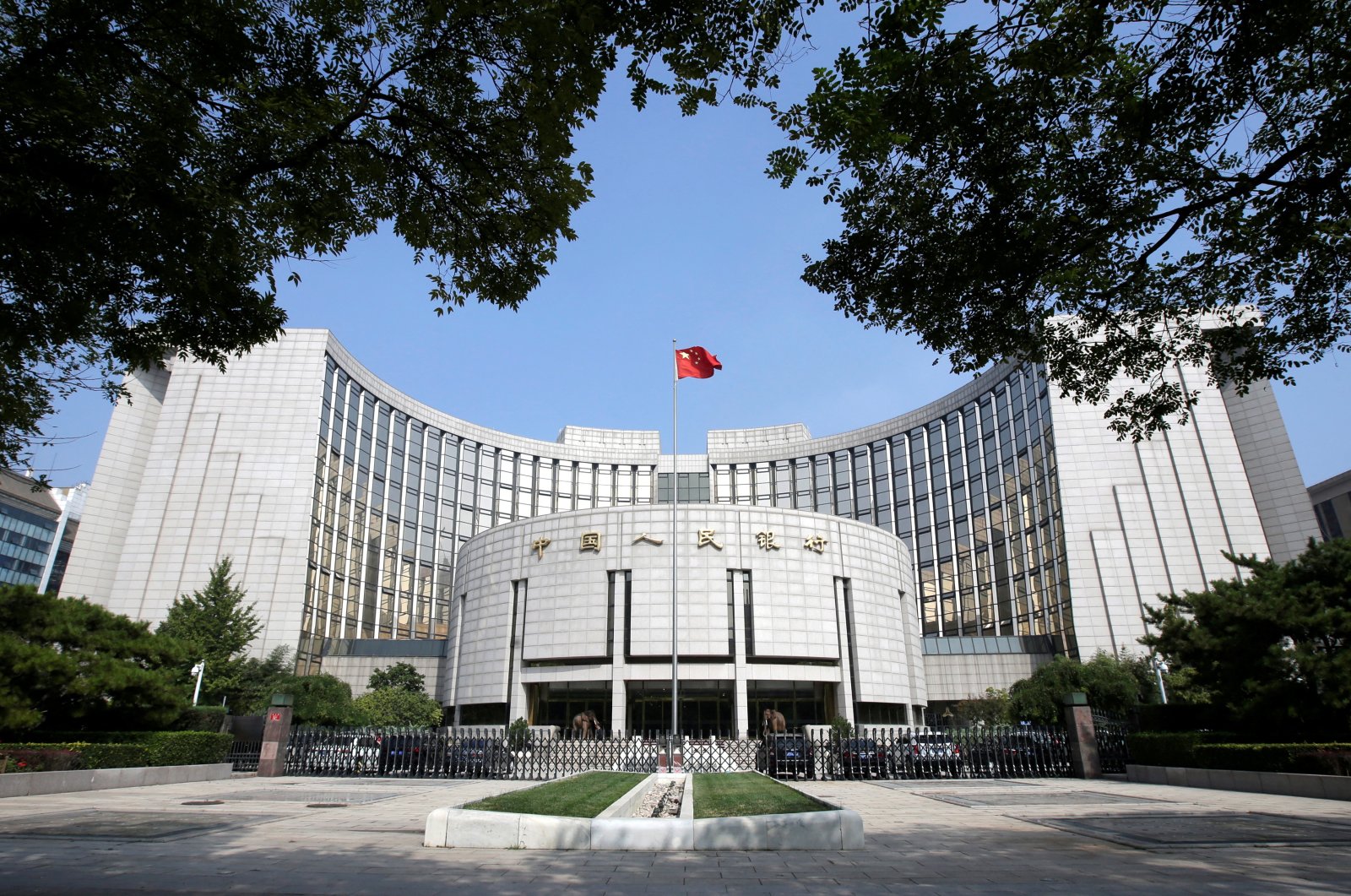
China surprised markets on Monday as its central bank lowered its key short-term policy rate and its benchmark lending rates in an effort to inject new life into its ailing property sector, while the ruling Communist Party released details of a top-level meeting focused on strategies for revving up the slowing world's second-largest economy.
The People's Bank of China (PBOC) cut the seven-day reverse repo rate to 1.7% from 1.8% and said it would also improve the mechanism of open market operations.
Minutes later, China cut benchmark lending rates by the same margin at the monthly fixing. The one-year loan prime rate (LPR) was lowered by 10 basis points to 3.35% from 3.45% previously, while the five-year LPR, which is a benchmark for mortgages, was reduced to 3.85% from 3.95%.
The cuts come after China reported weaker-than-expected second quarter economic data last week, and its top leaders met for a plenum that occurs roughly every five years.
The country is verging on deflation and faces a prolonged property crisis, surging debt and weak consumer and business sentiment. Trade tensions are also flaring, as global leaders grow increasingly wary of China's export dominance.
"The cut today is an unexpected move, likely due to the sharp slowdown in growth momentum in the second quarter as well as the call for 'achieving this year's growth target' by the third plenum," said Larry Hu, chief China economist at Macquarie.
The PBOC subsequently lowered the rates on its standing lending facility (SLF), a type of loan that it gives commercial banks to fulfill their temporary cash demands, by the same amount.
Ju Wang, head of Greater China FX & rates strategy at BNP Paribas, said that growing expectations for the U.S. Federal Reserve (Fed) to start cutting interest rates also gave the PBOC room to ease its policy, given the pressure the yuan has been under because of a wide yield gap with the dollar.
The official Xinhua News Agency cited unnamed sources close to the PBOC as saying the "decisive" rate cut showed its determination to bolster the recovery and it was in response to the plenum's aims to achieve this year's growth target.
The expanded summary of the Communist Party's plenum last week included ambitious targets for accomplishing leader Xi Jinping's goal of making China a "high-standard socialist market economy in all respects" by 2035.
The lengthy document, 50 pages in English, promises to beef up social welfare such as pensions, improve the tax system and protect private property rights. Rural migrants should have the same access to public services as long-term city dwellers, it says.
It also pledges equal market access and support for private enterprises and state-owned companies and establishing better "international coordination" of economic policies.
The document released Sunday was more detailed than a communique released after the party meeting ended last week. However, the actual reforms and laws it outlined in what amounts to a policy roadmap will come much later.
"We think these measures, if well implemented promptly, should help improve resource allocation, contain financial risks, unleash some growth potential, and underpin investors’ confidence, while the actual implementation and policy clarity and sustainability will be the key," UBS economists Nina Zhang and Tao Wang said in a report.
The world’s second-largest economy has struggled to regain momentum since the COVID-19 pandemic, and a slump in the property market has been a major hindrance. Economic growth fell to 4.7% in the last quarter, but remained at the government’s target rate of about 5% for the first half of the year.
The housing market cooled after regulators cracked down on excessive borrowing by developers, unleashing a chain reaction that has pulled sales and prices lower and hit many other parts of the economy, such as construction, building materials and home appliances.
Regulators have been fine-tuning policy as pressures have mounted in the economy and markets. Investors appear to be hungry for more aggressive action: On Monday, the Shanghai Composite index was down 1% even after the People's Bank of China announced several moves to relieve pressure on banks and property developers.
The central bank also reduced collateral requirements for its medium-term lending facility for banks. It said that was intended to ease pressure on the bond market.
The PBOC reduced the interest rate on its purchases of securities from commercial banks through bidding with a promise to sell them back in the future.
It said the rate cut on seven-day "reverse repos" aimed to help inject more cash into the banking system.
Chinese markets had a mixed reaction, with Hong Kong’s Hang Seng jumping 0.8% on buying of heavyweight technology shares on expectations that policies favoring advanced technology and innovation will favor sectors like electric vehicles, computer chips and new materials.
Video game maker Tencent rose by 2.4%, while e-commerce giants Alibaba and JD.com rose by 1.1% and 1.2%, respectively.
But many property developers’ shares languished. Country Garden dropped 5.7%, Hongkong Land Holdings fell 3.2% and China Vanke fell 3%.
